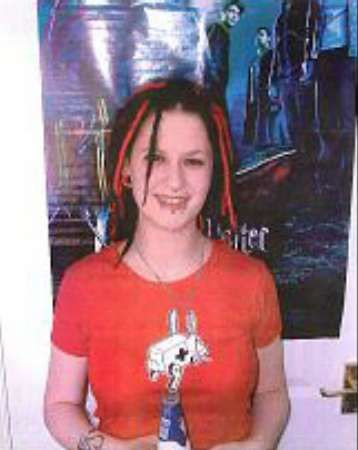Are Attacks On Goths, Punks And Emos Hate Crimes? Manchester Police Says Yes

Police in Manchester are starting to record attacks on goths, emos and punks as hate crimes, even though members of the youth subcultures are not protected under that designation by England’s courts.
The Greater Manchester Police force decided to expand its hate crime designation Wednesday in response to the 2007 murder of Sophie Lancaster, a 20-year-old who was brutally beaten into a coma and later died in an attack motivated by her goth lifestyle.
Garry Shewan, assistant chief constable of Greater Manchester Police, called the new hate crime reporting a “breakthrough” for policing. The designation gives members of subcultures, including goths, emos, punks and metalheads, greater police protection.
“The launch of this new strand of recordable hate crime is a major breakthrough. We are able to officially recognize that people who wish to express their alternative subculture identity freely should not have to tolerate hate crime – something that many people have to endure on a daily basis,” Shewan told the Telegraph. “This means that we can recognize the impact that alternative subculture hate crime has on its victims and the wider community. We can offer better support and risk assess the potential for repeat victimization.”
While the official recognition of "alternative subculture hate crime" has been lauded by Lancaster’s family and others, some believe the Manchester police’s policy makes hate crime protections too broad.
“People's racial origins, their religion, their sexual orientation, people's dignity in the face of disability -- these have been lines in the sand with the law saying, look, these are crimes that threaten social cohesion as a whole and therefore national life. I'm a little cautious about watering down this concept,” Lord Macdonald, former director of public prosecutions, told the BBC.
Even though Manchester police are recording the attacks at hate crimes, England’s courts cannot acknowledge the special designation. The country’s statues say crimes can be motivated by hate only when they’re committed due to a victim’s race, religion, disability, sexual orientation or gender identity.
Nevertheless, Sylvia Lancaster, Sophie’s mother, commended Manchester police and said the protection will make an impact among youths who belong to a subculture.
"I think [what the police are doing] will make a vast difference,” she told the BBC, noting the Sophie Lancaster Foundation pushes for attacks on members of subcultures to be considered as hate crimes. “We're finding people are coming to us and saying since we started our campaigns they feel safer."
Shewan said Sophie’s murder, committed by two teens who admitted to brutally beating her because of the way she dressed, should spur England to expand its hate crime statutes.
“Hate crime ruins many people’s lives and in some cases can tragically cost lives,” he told the Daily Mail. “We work with many organizations to raise the awareness of what hate crime is and how victims can be supported and we will continue to encourage our communities to challenge it, report it and help us to stop it.”
© Copyright IBTimes 2025. All rights reserved.






















